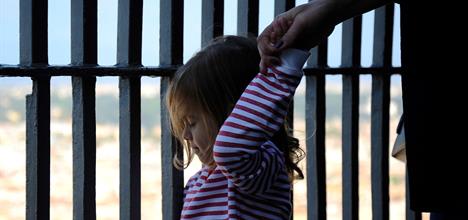
A fact sheet from the Sentencing Project gives key facts on parents in prison. It illustrates the policies that impede their ability to care for their children when released from prison. Here’s an overview:
- In 2016, 47% of people in state prisons and 57% in federal prisons were parents of minor children.
- Most parents in prison are fathers (626,800 fathers compared to 57,700 mothers).
- The number of fathers in prison increased 48% and the number of mothers in prison increased 96% between 1991 and 2016.
Also according to the article, 2.7 million children have a parent serving time in prison or jail on any given day, and over 5.2 million have had an incarcerated parent at some point during their lives. Furthermore, the percentage of children who have experienced parental incarceration varies widely state to state, from a low of 3% in New Jersey to a high of 13% in Kentucky.
The prevalence of parental incarceration also varies considerably by race. In 2018, 20% of Native children, 13% of Black children, 6% of Latinx children, and 6% of white children had experienced parental incarceration at some point in their lives.
According to the National Institute of Justice, the impacts of parental incarceration on children bring terribly negative consequences. They include psychological stress, antisocial behavior, academic suspension or expulsion, economic hardship, and criminal activity.
The growth and decline of the number of children with imprisoned parents mirrors the changing incarceration rates of the past few decades. Between 1972 and 2009, the U.S. prison population increased nearly 700%, due to policy changes including long mandatory sentences, the declining use of parole, and more punitive responses to substance use disorders.
The arrest of a parent can be traumatic for many children. As noted in a comprehensive review of research on children with incarcerated parents, the arrest and removal of a mother or father from a child’s life forces that child to confront emotional, social and economic consequences that may trigger behavior problems, poor outcomes in school and a disruption or severance of the relationship with the incarcerated parent that may persist even after the parent is released from prison.
I work hard to reunite families separated by the criminal justice system. Please contact my office if you, a friend or family member are charged with a crime. Hiring an effective and competent defense attorney is the first and best step toward justice.






